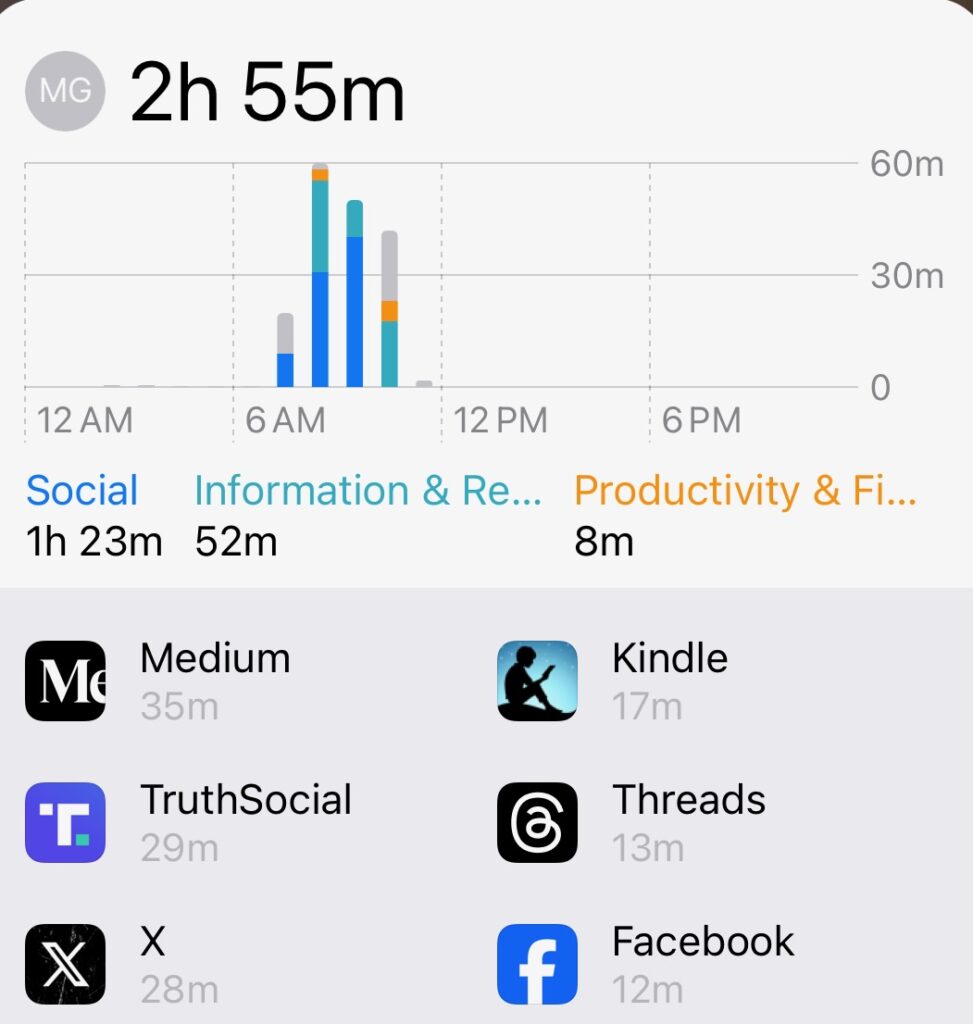I have been reading a couple of books addressing the hypothesized detrimental effects of screen time. (The anxious generation, Unlocked). Haidt’s “Anxious Generation” has received the most buzz topping the NYTimes best sellers list for some time. “Unlocked” is relatively unknown, but it raises some very important questions about the assumptions of the books taking a simplistic view of technology and possibly raising moral panic. The potential of selling lots of books that tap into educator and parent insecurities is also explored.
One of Etchells (Unlocked) observations is the correlational and self-report data that seems to provide the basis for most assumptions about the negative perspective of the screen time critics. He makes one related observation that did make sense to me. Why with the opportunity to use technology to collect data on technology use do most researchers rely on self reports?
So, I checked my phone’s data for the last few hours.

Actual data. First, this is an early morning routine and not necessarily reflective of how I might use my phone the rest of my day. I also seldom read much on my phone and most of that data for this period would be on my iPad. There are probably positive and negative opportunities reflected in this screen time and that is Etchell’s point. The Medium and Kindle time would be informative reading and an underestimate because iPad data are not included. I would think information consumption would be a positive thing. I know the TruthSocial time is negative because I use that account to read content I know is mostly annoying. However, even this time could be argued to be good or bad. I check TruthSocial because I am intrigued by the weird beliefs and justifications some folks present. To be informed, shouldn’t I have some experience with such behavior? Would it be better that such weird stuff be all around and I or others not be aware?
![]()

You must be logged in to post a comment.